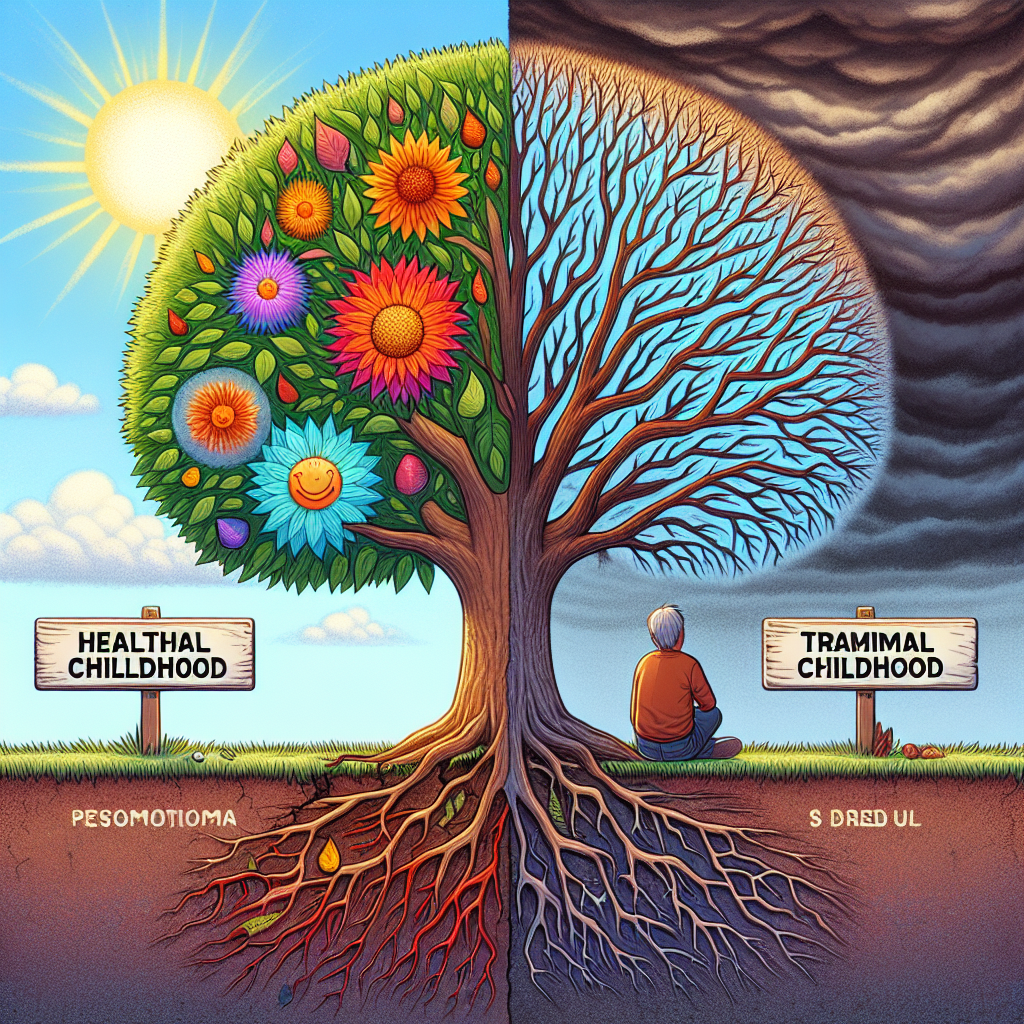Childhood trauma refers to experiences that are emotionally or physically harmful and have a lasting impact on a person’s psychological well-being. These traumatic events can range from physical or sexual abuse, neglect, domestic violence, natural disasters, accidents, or the loss of a loved one. Childhood trauma can have a profound impact on a person’s psychological development, shaping their beliefs, behaviors, and overall mental health in adulthood.
The impact of childhood trauma on adult psychological development can manifest in various ways, including but not limited to:
1. Post-Traumatic Stress Disorder (PTSD): Individuals who have experienced childhood trauma may develop PTSD, a mental health condition characterized by persistent intrusive thoughts, nightmares, and flashbacks of the traumatic event. These symptoms can significantly impair a person’s ability to function in daily life and can lead to intense emotional distress.
2. Anxiety and Depression: Childhood trauma can increase the risk of developing anxiety and depression in adulthood. The constant stress and fear experienced during traumatic events can have a long-lasting impact on a person’s mental health, leading to feelings of helplessness, worthlessness, and hopelessness.
3. Behavioral Issues: Children who have experienced trauma may exhibit disruptive behaviors such as aggression, impulsivity, and defiance. These behaviors can persist into adulthood and impact relationships with others, employment, and overall functioning in society.
4. Relationship Difficulties: Individuals who have experienced childhood trauma may struggle to form and maintain healthy relationships in adulthood. Trust issues, fear of abandonment, and difficulty expressing emotions can all stem from unresolved childhood trauma and can interfere with forming meaningful connections with others.
5. Substance Abuse: Childhood trauma is a significant risk factor for developing substance abuse issues in adulthood. Many people turn to drugs or alcohol as a way to cope with the emotional pain and distress caused by past traumatic experiences, leading to a cycle of addiction and further mental health challenges.
6. Low Self-Esteem: Childhood trauma can erode a person’s sense of self-worth and self-esteem. Constant criticism, neglect, or abuse can internalize negative beliefs about oneself, leading to feelings of inadequacy, shame, and self-blame.
7. Physical Health Issues: The impact of childhood trauma is not limited to mental health; it can also have physical health implications. Research has shown that individuals who have experienced childhood trauma are at a higher risk of developing chronic health conditions such as obesity, cardiovascular disease, and autoimmune disorders.
It is important to note that not everyone who experiences childhood trauma will develop psychological issues in adulthood. Resilience, social support, and access to mental health resources can all play a protective role in mitigating the impact of childhood trauma on psychological development.
Frequently Asked Questions (FAQs):
Q: Can childhood trauma be healed?
A: While the effects of childhood trauma can be long-lasting, healing and recovery are possible with the right support and resources. Therapy, support groups, and self-care practices can all aid in the healing process.
Q: How can I help a loved one who has experienced childhood trauma?
A: Be patient, empathetic, and supportive. Encourage your loved one to seek professional help and provide a safe and non-judgmental space for them to share their feelings and experiences.
Q: What are some coping strategies for managing the effects of childhood trauma?
A: Engaging in self-care practices such as mindfulness, exercise, and creative outlets can help manage the effects of childhood trauma. Seeking therapy and building a strong support network are also vital in the healing process.
Q: Is it ever too late to address childhood trauma?
A: It is never too late to address childhood trauma and work towards healing and recovery. With the right support and resources, individuals can begin to process and heal from past traumatic experiences at any stage of life.
In conclusion, the impact of childhood trauma on adult psychological development is significant and complex. It can manifest in a variety of ways, affecting mental health, relationships, behavior, and physical well-being. However, with the right support and resources, individuals can heal and recover from past traumatic experiences and move forward towards a healthier and more fulfilling life.




Leave A Comment